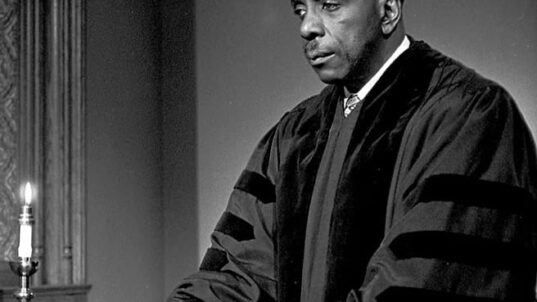
Kimberly Teehee via www.cherokee.org
Rebecca Ketcher was three years old when soldiers rounded up her entire family and forced them to abandon their family home. Her father wanted to put up a fight, but her mother dissuaded him. He’d only end up dead. The family was driven from their land and forced to march to a prison camp. Eventually, soldiers forced the Ketcher family, along tens of thousands of their people, on a roughly thousand-mile march through the winter, leaving their homeland behind. Thousands would die along the way, a quarter of their people.
Stories like Rebecca’s might sound familiar to you from the genocidal movements of twentieth century Europe. But Rebecca’s story took place here in the US. Just imagine if this had been your history. Most of us would be resentful and outraged with the ability of a government to take our homeland from us. Just imagine how the Cherokee Nation felt.
In the latter part of the eighteenth century, the Cherokee Nation’s homeland extended over what is now Tennessee, North Carolina, Georgia, and Alabama. As white settlers migrated into the area, they sought to take over the Cherokee lands. The Georgia legislature pushed to have the Cherokees removed. They asked President John Quincy Adams to negotiate a treaty to move the Cherokees to largely unoccupied land further west. He refused.
When Andrew Jackson became President, the Georgia legislature found a champion for the forced removal of the Cherokee Nation. The Cherokee Nation had all land stripped from them except for private residences.
After a period of maneuvering that would make for a compelling political drama, the Treaty of New Echota was signed in 1835 by an unauthorized minority group of the Cherokee Nation that interposed themselves in the negotiations with the federal government. While the official government of the Cherokee Nation, and the majority of the people, did not approve the treaty, they were still subject to its enforcement.
In 1836, the Cherokee Nation was forcibly removed from their homeland and moved to Indian Territory, a loosely defined area that has subsequently been encroached on whenever states or the federal government deem it desirable. The forced removal of the Cherokee Nation is known today as the Trail of Tears.
One provision of the treaty was that a delegate of the Cherokee Nation would serve in the US House of Representatives. That provision of the treaty has still not been honored. But that could now change. Kim Teehee, pictured above, has been nominated by the Cherokee Nation as their delegate. Congress is currently considering whether to seat her as a non-voting delegate in the House.
After so many broken promises, just imagine what it would mean for our nation to make good on this promise. As our nation continues to confront threats to our democracy, just imagine how Native Americans feel about what has been done to them since Europeans first arrive and since our nation was first formed. Each of us needs to reflect on how we would feel if we were forced to move from our homes by governmental action. How might we enhance our democracy today by actively repairing the harms done by our government in the past?
* * *
“Many proposals have been made to us to adopt your laws, your religion, your manners and your customs. We would be better pleased with beholding the good effects of these doctrines in your own practices, than with hearing you talk about them.”—Old Tassel, Cherokee Chief
This is part of our “Just Imagine” series of occasional posts, inviting you to join us in imagining positive possibilities for a citizen-centered democracy.



